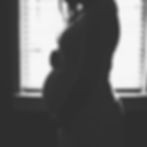Sunshine, Mum-mates & traumatic birth stories
A short tale of frustration and feminism.

This beautiful weather isn’t just about the glory of the sun on our skin. It’s social too. It draws us out of our homes, and into parks and woodland, so larger groups gather than the standard family home can usually accommodate. Yesterday, for me, this meant that the 5 families with children cared for by our childminders were able to take to the park, allow the children to run riot while we settled into a shady bench and had the chat we're usually too busy to have. As often happens when mothers get together, talk turned to our birth stories. And yet again, there were more tears of sadness, guilt & trauma than of pride, amazement or joy.
Sadly, this is not an uncommon experience for me. I hear women's birth stories all the time. Partly, in the course of my work. And also privately. Birth stories - for fathers as well as mothers - are indelibly printed in our psyche for the rest of our lives. Our experience of the birth of our children forms another, permanent, rampart in our understanding of who we are and how we perceive the world.
Let me tell you what I've learned from these stories. The trauma is never about the pain (despite what we women are led to a understand is an inevitable consequence of birth). The women I hear very rarely talk to me about pain. They talk about being coerced into a VBAC (vaginal birth after caesarean) . Or institutional resistance to 'allowing' a VBAC. They tell me about the indignity of being encouraged to be naked. Of the vulnerability of exposure . The fear that comes with not understanding what is happening. The shame of being 'told off'.
There are good stories too. Lots of them. Women who tell me they will always remember the name and the face of the women who assisted in each birth. I hear about encouragement. Kind words. Gentleness with partners. About feeling powerful. About the surprising discovery of reserves of resilience & grit.
There are correlating factors between these two starkly different sets of stories. It’s the difference between women who felt in control of their birth, versus women who felt it was visited upon them.
Take a look at Anne Lyerly Drapkins book A Good Birth: Finding the Positive & Profound in Your Childbirth Experience. In her 2014 research study, intended to correlate the factors for a ‘good birth’, she identified 5 themes which tie ‘good birth’ stories together;
Agency
Personal security
Connectedness
Respect
Knowledge.
A ‘good birth’ is not about how your baby comes out of your body. It’s not about drugs or no drugs. It’s not about whether you’re hippy or a ball-busting, high flying exec. It’s about understanding what your body is going to do and how. It’s about feeling safe & secure. It’s about being connected to the team around you. It’s about trusting that you are respected, being able to respect those supporting you. And it’s about being empowered – having the confidence & the vocabulary – to ask for what you want.
That doesn’t seem so hard, does it? In fact, it doesn’t seem so different to the human rights we expect in all other aspects of our lives. So how is it that we accept a lack of knowledge, a lack of personal security, a lack of connectedness, a lack of control and a lack of empowerment in childbirth?
And not just us as individuals. According to 2016 ONS data, 82% of women become mothers by the time they are 45 years old. Birth, and the associated trauma, is NOT a minority issue. In this, Birth Trauma Awareness Week, this is something we should ponder on.
If it’s appropriate for you, you might want to watch this film from the Birth Trauma Association, talking to 5 women about their experiences. It’s an important issue, and one that isn’t talked about, or considered, enough.











